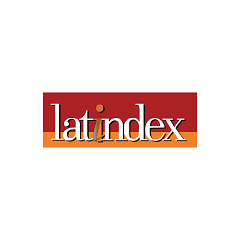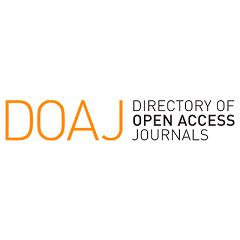ECOLOGICAL TIME SERIES STUDY OF THE NUTRITIONAL STATUS OF ELDERLY PEOPLE IN PARAÍBA
DOI:
https://doi.org/10.17695/rcsne.vol22.n3.p322-328Keywords:
População Idosa, Estado Nutricional, Saúde do Idoso, Sobrepeso e Baixo Peso, Sistema de Vigilância Alimentar e Nutricional (SISVAN).Abstract
Brazil is experiencing a rapid aging process, requiring public health policies to meet the needs of the elderly population. Nutritional status directly impacts health, influencing growth, development, and the risk of morbidity and mortality. Healthy eating is essential for the promotion, prevention, and control of diseases, and the Food and Nutrition Surveillance System (SISVAN) plays a central role in monitoring the country's nutritional situation, including the elderly population. This retrospective study evaluated the nutritional status of elderly individuals in Paraíba from 2013 to 2023, using data from SISVAN. The state is divided into 16 health regions, and the data analyzed Body Mass Index (BMI): underweight (BMI ≤ 22), adequate weight (22 < BMI < 27), and overweight (BMI ≥ 27). The results showed an increase in all BMI categories over the decade. Overweight stood out with a significant rise, reaching nearly 70,000 cases in 2023, especially in the Mata Atlântica region (1st) and the 16th region. Only the 7th region showed lower overweight levels compared to eutrophy, with 1,156 cases. These differences suggest that local factors, such as access to healthy food and healthcare services, influence nutritional status. The increase in cases of underweight and overweight among the elderly is concerning, reflecting socioeconomic inequalities, inadequate dietary habits, and difficulties in accessing healthcare. Therefore, targeted interventions in more vulnerable regions are essential to reduce disparities, promote better nutrition, and improve the health of the elderly population.
Downloads
Published
How to Cite
Issue
Section
License
Copyright (c) 2024 Revista de Ciências da Saúde Nova Esperança

This work is licensed under a Creative Commons Attribution-NonCommercial 4.0 International License.
-
Declaro minha participação efetiva na elaboração do trabalho acima intitulado e torno pública minha responsabilidade por seu conteúdo. Certifico que o manuscrito representa um trabalho original e que nem este ou qualquer outro trabalho de minha autoria, em parte ou na íntegra, com conteúdo substancialmente similar, foi publicado ou enviado a outra revista, seja no formato impresso ou eletrônico; e que todos os procedimentos éticos foram tomados objetivando sua publicação.
Adicionalmente,
- Declaro que, em caso de aceitação do artigo, a Revista de Ciências da Saúde Nova Esperança, ISSN 2317-7160 passará a ter os direitos autorais a ele referentes, incluindo modificações para o melhor entendimento do conteúdo, que se tornará propriedade exclusiva da Revista, sendo liberada a reprodução total ou parcial em qualquer outro meio de divulgação, impresso ou eletrônico, desde que citada a fonte, conferindo os devidos créditos à Revista de Ciências da Saúde Nova Esperança.
- Declaro que não houve plágio e tenho conhecimento que o plágio representa um crime previsto no artigo 184 do Código Penal.
- Declaro, como autor responsável pela submissão, que nem eu e nenhum um dos autores que compõe a autoria desse manuscrito possuímos conflito (s) de interesse (s) relacionado (s) ao artigo. Que seja de natureza pessoal, comercial, política, acadêmica ou financeira.
Estou ciente que se for detectado a falsidade das declarações acima, o artigo será considerado nulo, podendo a informação de cancelamento ser de conhecimento público.

















